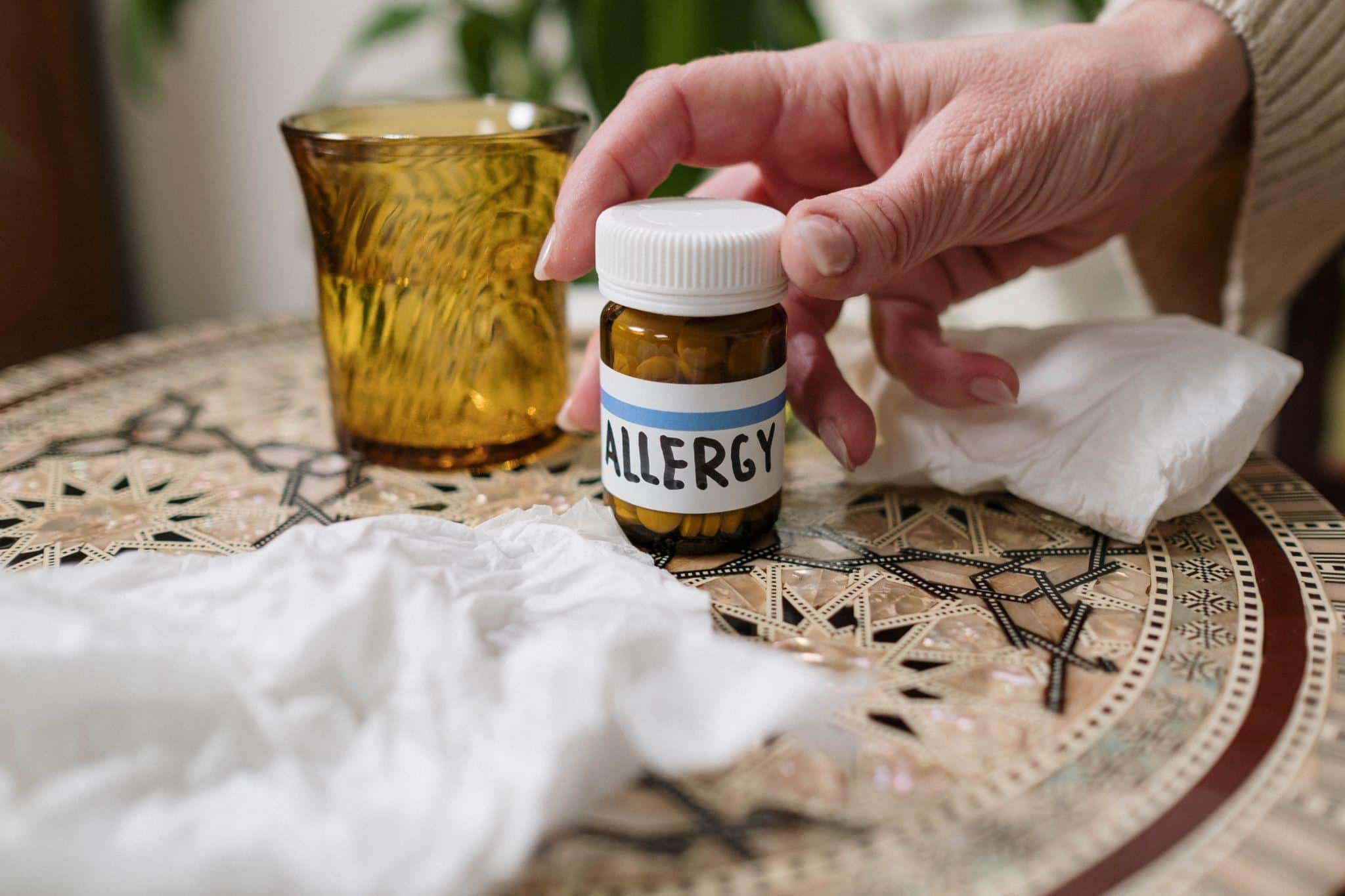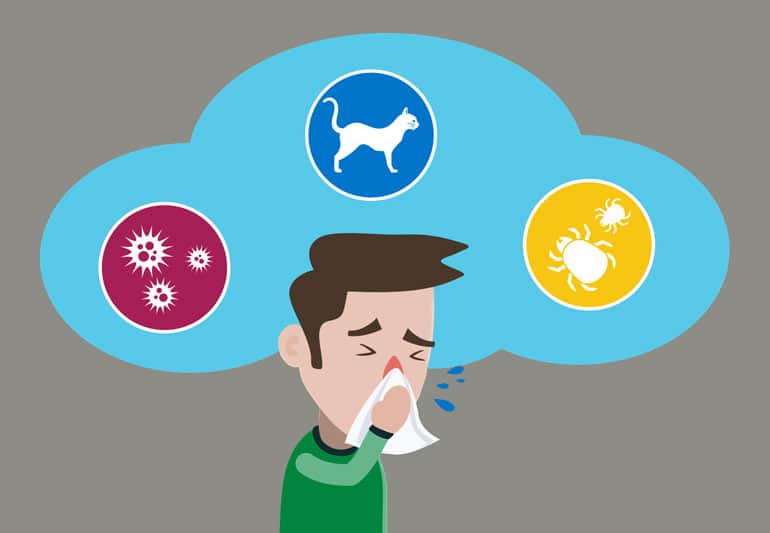Seasonal allergies can be uncomfortable and even debilitating, but there are ways to manage the symptoms and make life more bearable during allergy season. Along with taking allergy medication and following a treatment plan recommended by a healthcare professional, there are also some things that you should avoid while suffering from seasonal allergies.
Avoiding triggers and irritants can help reduce symptoms and prevent them from worsening. This may include avoiding certain foods, activities, and environments that can aggravate allergies. In this way, you can take control of your allergy symptoms and improve your quality of life during allergy season.

Things You Should Avoid
If you are suffering from seasonal allergies, there are certain things you should avoid to help manage your symptoms and avoid triggering allergic reactions. Here are some things to avoid:
Delaying Treatment
Seasonal allergies can cause many symptoms, including sneezing, itching, congestion, runny nose, and watery eyes. These symptoms can make it difficult to concentrate, sleep, and perform daily activities, and they can also impact your mental health by causing anxiety and depression.
Delaying treatment for seasonal allergies can lead to complications such as sinus infections, ear infections, and asthma. In addition, allergies can trigger or worsen asthma symptoms, which can be life-threatening in some cases.
Many effective treatments are available, such as antihistamines, nasal corticosteroids, decongestants, and immunotherapy. These can help reduce symptoms and improve your quality of life, but these treatments work best when started early. You can also take help from online urgent care.
Certain Foods
If you suffer from seasonal allergies, you may also experience oral allergy syndrome (OAS) or pollen-food allergy syndrome (PFAS). OAS is a condition where the immune system mistakes the proteins in certain fruits, vegetables, and nuts for pollen allergens, leading to an allergic reaction.
Some symptoms of OAS are itching and swelling of the mouth, throat, and lips. It is always advisable to consult with an allergist to determine what specific foods should be avoided and how to manage OAS effectively. Avoiding certain foods during pollen season is necessary for people who experience OAS or PFAS.
Outdoor Activities During Peak Polen Times
During peak pollen times, the pollen concentration in the air is higher. It increases the chances of experiencing allergic symptoms. These symptoms include itchy eyes, a runny nose, sneezing, and coughing. When you participate in outdoor activities during peak pollen times with seasonal allergies, you expose yourself to higher pollen levels.
It can worsen your allergy symptoms. However, suppose you must be outdoors during peak pollen times. In that case, you can take steps that will help you to avoid seasonal allergies, like wearing sunglasses to protect your eyes, wearing a mask, and taking medication as suggested by a doctor.
Wearing Contact Lenses
If you are suffering from seasonal allergies, it is generally recommended to avoid wearing contact lenses for several reasons, such as increased eye sensitivity, risk of infection, difficulty managing symptoms, and better medication absorption. In addition, allergies can cause your eyes to produce more tears, accumulating on your contact lenses and creating a breeding ground for bacteria.
Contact lenses can exacerbate sensitivity, causing discomfort, redness, and itching. Removing and cleaning your lenses may be inconvenient. Avoid wearing contact lenses during allergy season. If you need to wear them, be sure to disinfect them regularly and remove them if you experience discomfort or irritation.
Keeping Windows Open
When windows are open, pollen, dust, and other allergens can easily enter your home and exacerbate your allergy symptoms. Closing your windows can help reduce your exposure to these allergens. Unfortunately, with allergens, open windows can also allow other irritants, such as smoke or pollution, to enter your home and aggravate your allergy symptoms.
That’s why it's best to keep your windows closed during allergy season and use air conditioning or air purifiers to filter out allergens and irritants from the air inside your home. This can help reduce your exposure to allergens and alleviate your allergy symptoms.
Touching Your Face
When you touch your face, you can transfer allergens, such as pollen or dust, from your hands to your eyes, nose, or mouth, triggering or exacerbating allergy symptoms. This can lead to increased itching, sneezing, congestion, and other uncomfortable symptoms. In addition, bacteria and viruses commonly found on your hands can easily enter your body through your eyes, nose, or mouth, especially if you have already irritated your mucous membranes due to allergies.
Avoid touching your face as much as possible to reduce your risk of worsening your allergy symptoms or developing secondary infections. This includes avoiding rubbing your eyes or nose and washing your hands frequently with soap and water or using hand sanitizer.
Smoking or Being around Smokers
Cigarette smoke contains numerous irritants and allergens that can trigger or exacerbate allergy symptoms, such as coughing, wheezing, and shortness of breath. In addition, smoking can damage the respiratory system and impair the body's ability to fight off allergens and infections.
Smoking and secondhand smoke can increase the risk of developing secondary infections, such as sinus infections or bronchitis, which can further worsen allergy symptoms and impact respiratory health. If you are a smoker, quitting is the best thing you can do for your health and those around you.
By avoiding these triggers and managing your symptoms, you can better cope with seasonal allergies and enjoy your daily life with fewer interruptions.
Conclusion
In conclusion, managing seasonal allergies can be challenging, but there are things you can do to avoid worsening your symptoms. It's important to avoid triggers and irritants that can aggravate your allergies, such as outdoor activities during high pollen count days, exposure to pet dander, and certain foods that can cross-react with pollen. By working with your healthcare provider and following these guidelines, you can take control of your allergy symptoms and enjoy a better quality of life during allergy season.

